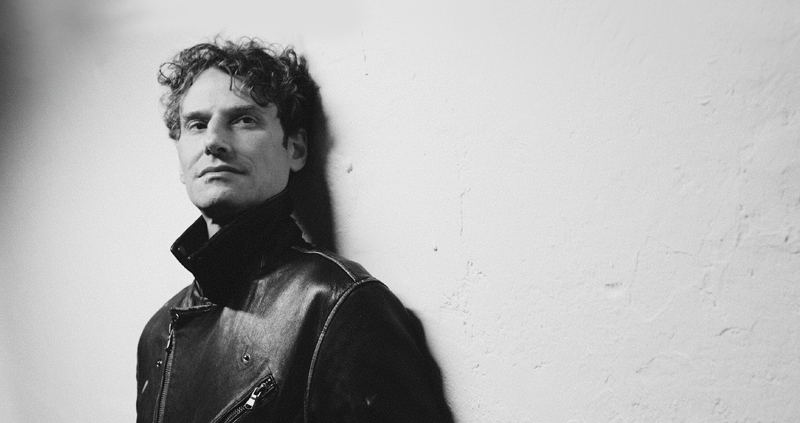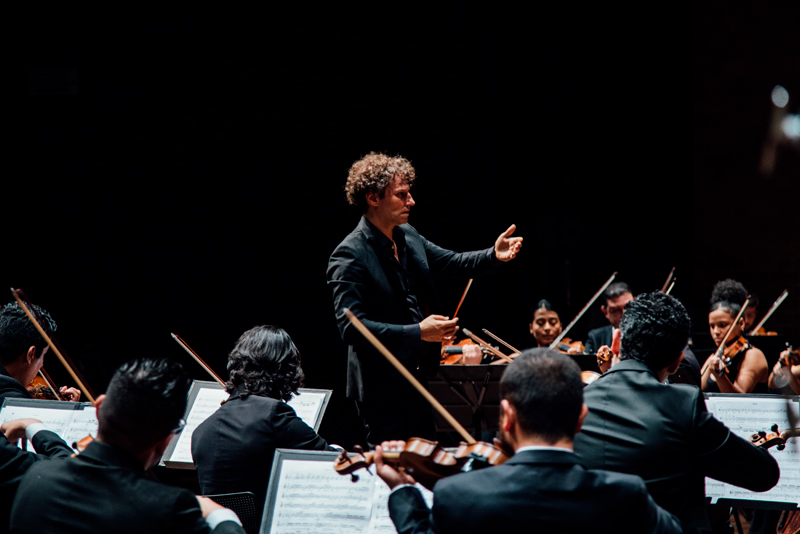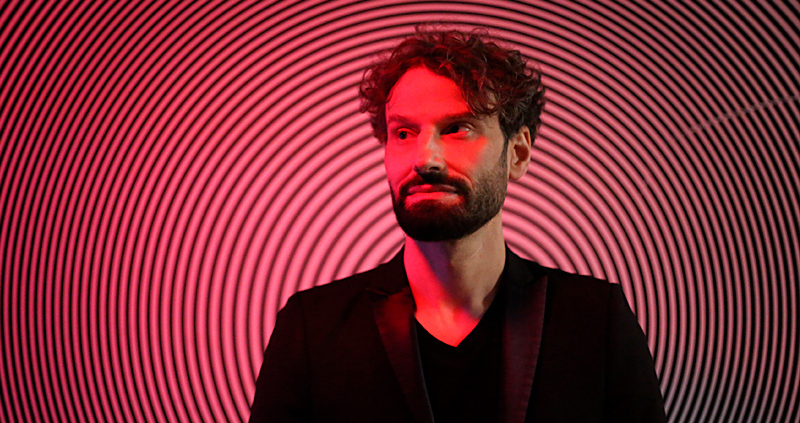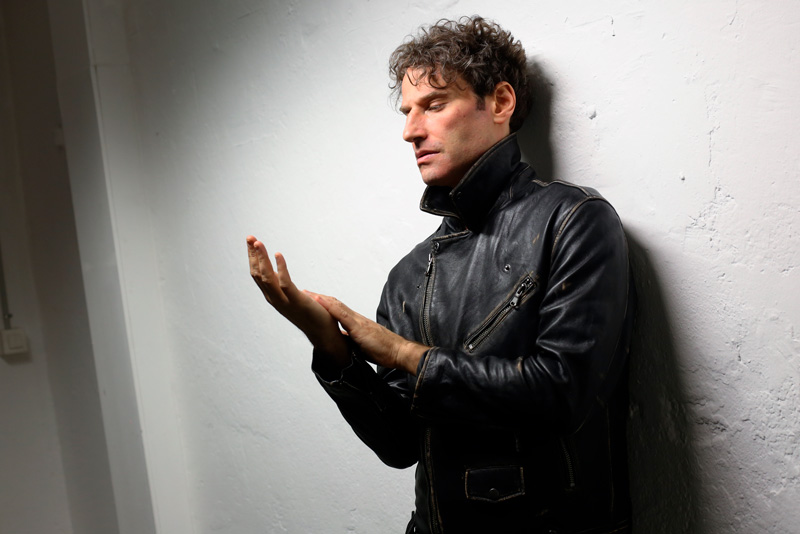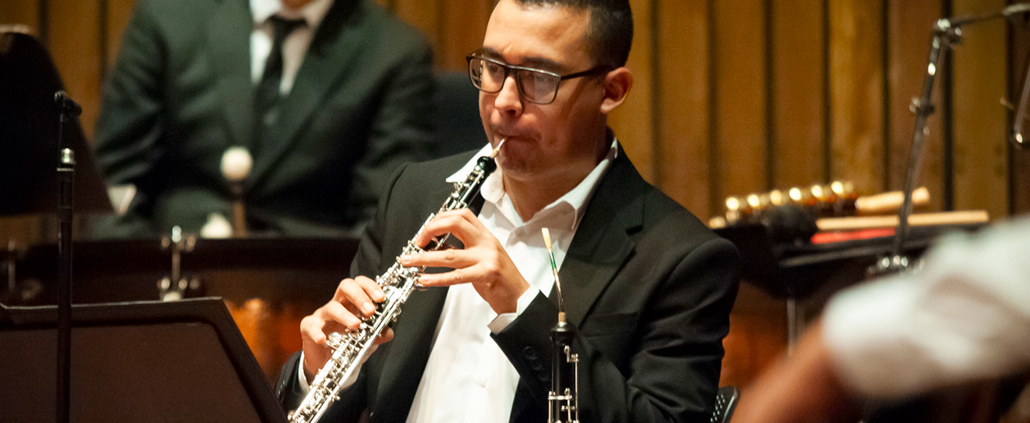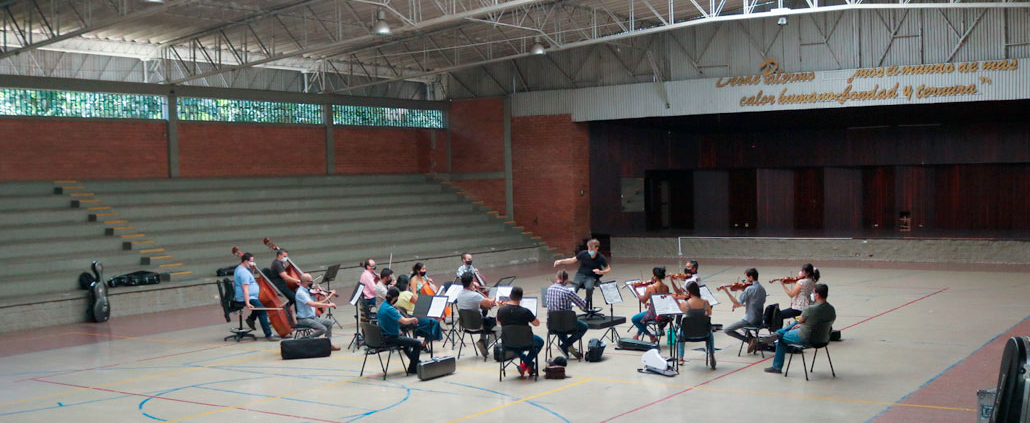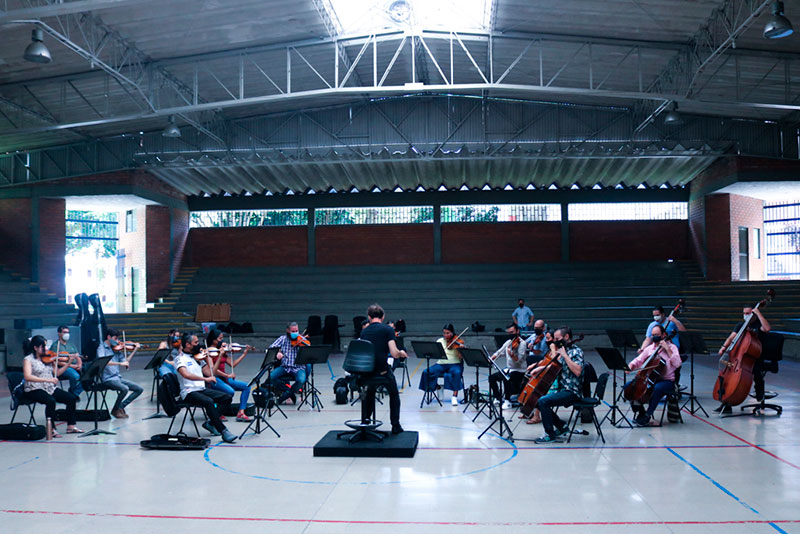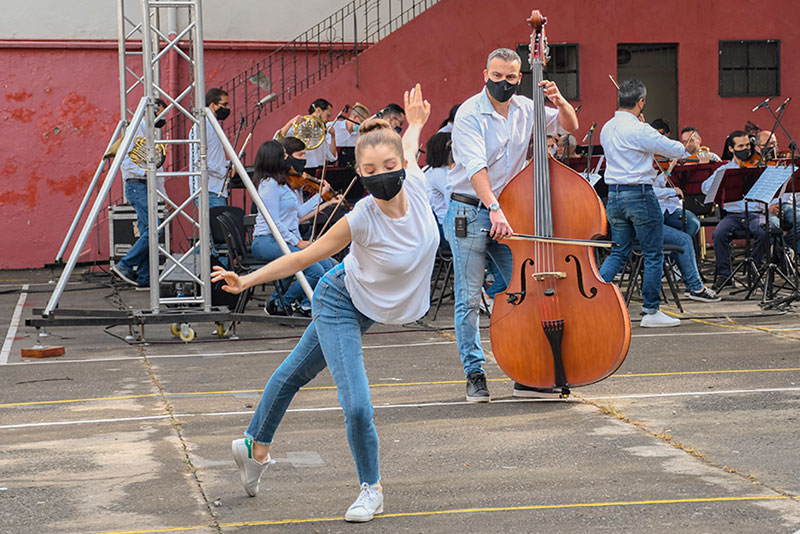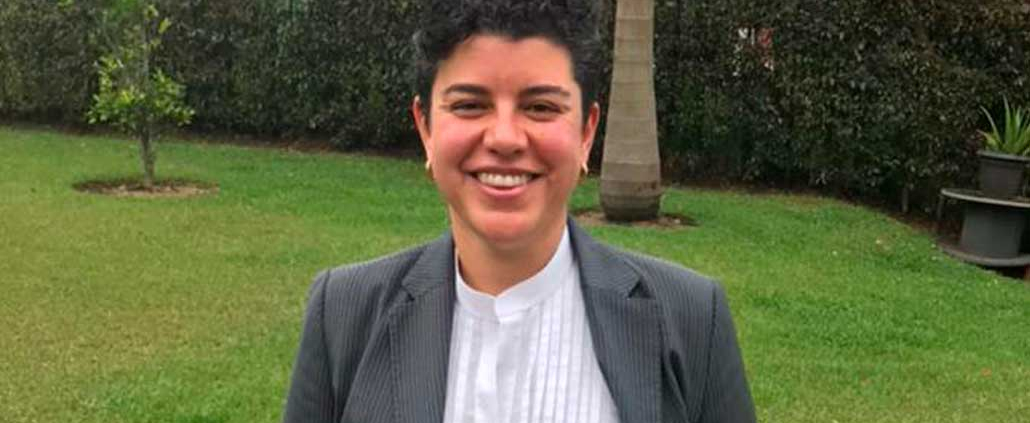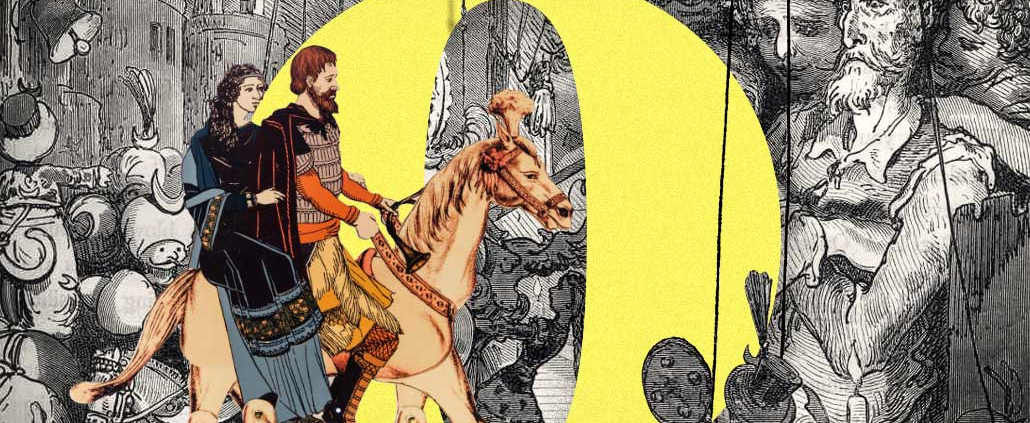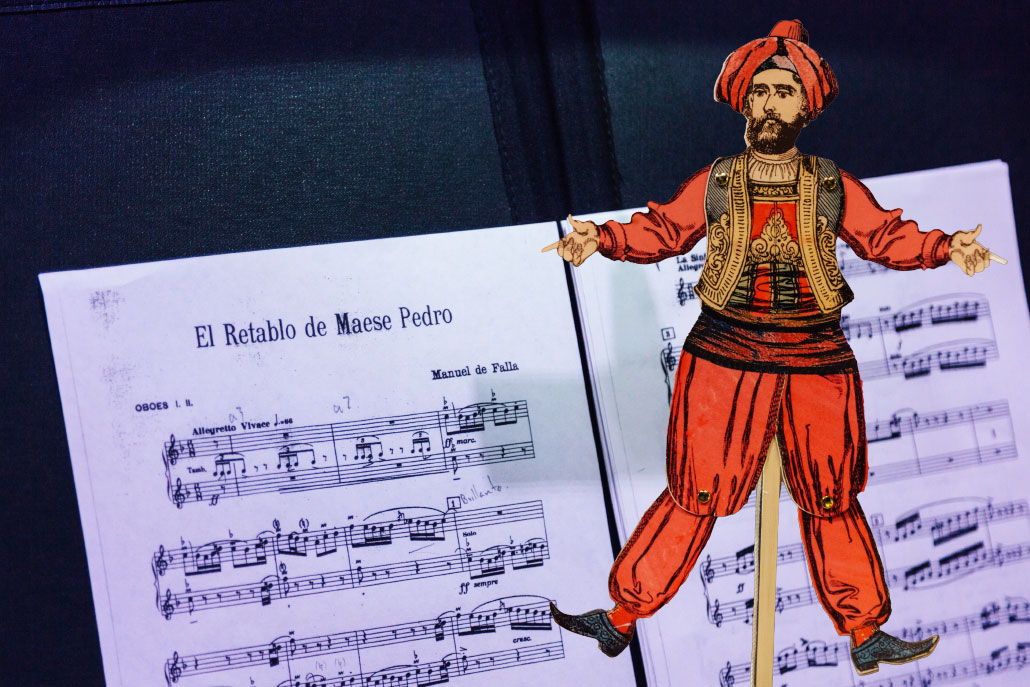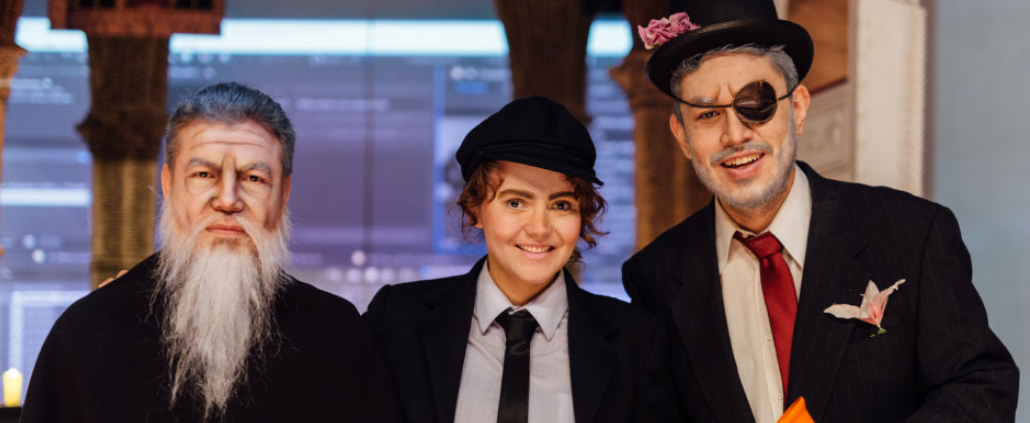The Israeli David Greilsammer, new director of Filarmed
The Israeli David Greilsammer, born and raised in Jerusalem, assumes direction of the Medellín Philharmonic Orchestra this year. This is the opportunity for relationships to be established with Israeli directors, soloists and artists through his baton.
“In the coming years we will work intensely on the development of the orchestra's sound, its identity, its virtuosity, its musical ideas, its artistic adventures. I would like Filarmed to become a leader in the orchestral world, combining its musical excellence, its originality, its Colombian and Latin American traditions, and its very warm human spirit, to be able to offer spectators unforgettable and exciting concerts. that will have a unique impact on their lives.” David Greilsammer
A director committed to Filarmed's purpose
The Medellín Philharmonic Orchestra strengthens close relationships and aims to transform with music.
In 2021, the Orchestra won the Latin Grammy for Best Latin Music Album for Children for Tu Rockcito Filarmónico, and in 2022 it received the Classical:NEXT Innovation Award, in recognition of an Orchestra management model that strengthens close relationships , believes in music as an agent of social transformation and focuses its efforts on programs that bring symphonic music to all populations in the region, reaching unconventional spaces and serving vulnerable populations.
Thinking about the orchestra of the future
Filarmed is currently in one of the most interesting moments in its history. In the next five years it will work on four fronts: first, to be a musical reference in Latin America, to be recognized as one of the most important orchestras in the region and even worldwide. Second, to be a bold and innovative organization, which can produce captivating experiences with versatile musicians; that beyond playing an instrument well, they work with others and with other artistic disciplines. Third, to be an orchestra rooted in and committed to all types of populations in diverse territories, putting its capabilities at the service of social transformation, using music to improve the lives of everyone, and finally being a financially and organizationally sustainable orchestra. and the environmental.
Greilsammer's baton
From 2022, director and pianist David Greilsammer will be in charge of exploring the artistic path that the orchestra will take for four years. As the new principal conductor, his tasks will be to take the musical quality of the orchestra to a higher level, determine who will be the guest conductors and soloists, give visibility to the orchestra abroad, create connections and accompany the educational, inclusion and training.
“David will have the responsibility of charting the artistic route along which the orchestra will continue moving,” explains María Catalina Prieto, executive director of the orchestra.
The selection process
A shortlist of conductors, also made up of Robin O'Neill and Christian Vásquez, participated in the selection process, in which the entire orchestra praised their artistic performance, their projection towards society and their capacity for inspiration. Each of the candidates stayed in the city for four weeks to explore multiple orchestral formats, they also had the opportunity to perform a series of community, seasonal, pedagogical and chamber music concerts, and shared their experience with educational and social programs .
“For three years Filarmed had a series of guest conductors that allowed it to learn about other styles. From that group came the shortlist that accompanied us in 2021. The selection process was very rigorous and was guided by the standards of the American League of Orchestras,” said María Catalina. Each director was evaluated with several rubrics that were rated by the musicians, the administrative team and the Board of Directors.
The final score allowed the Israeli David Greilsammer to be chosen, who will accompany Filarmed for the next four years.
Bold and adventurous
“This is perhaps our most important mission: to share classical music with humans in all parts of society and to ensure that all people have access to the highest quality music,” says David Greilsammer.
Born in Israel, he is one of the most daring and adventurous artists of the classical world. Director and pianist, unafraid to take risks on stage, he has created some of the most eclectic and daring musical projects today, earning distinctions from The New York Times, The Sunday Times, The Guardian, The Boston Globe and many others.
Since 2013, he has served as musical and artistic director of the Geneva Camerata, one of the most innovative orchestras in the world. He has been appointed as chief conductor of the Medellín Philharmonic Orchestra with which he will perform his first concert in this capacity in August 2022.
The challenges of the new director
Greilsammer will have to think about what differential factor he wants with the orchestra and how he wants it to be recognized worldwide. In addition, you must create musical experiences that achieve empathy with new audiences, strengthen the purpose of transforming society and promote training and inclusion processes in the department.
In the coming years, the new chief conductor will work intensely on the development of the orchestra's sound, its identity, its virtuosity, its musical ideas, its artistic adventures. “I would like Filarmed to become a leader in the orchestral world, combining its musical excellence, its originality, its Colombian and Latin American traditions, and its very warm human spirit, to be able to offer spectators unforgettable and exciting concerts that will have an impact.” unique in their lives,” said Greilsammer.
He has already begun his work as an artistic advisor and is preparing his debut as a headliner with two concerts in August: the first will talk with biodiversity and environmental care to celebrate Igor Stravinsky's 140th birthday, and the second will take us on a profound journey to care for the oceans to celebrate 160 years of Claude Debussy.
“Classical music needs to be inspired by other artistic disciplines and other musical worlds, such as jazz, rock or folk music, and I am glad that Filarmed is already doing so many projects in this direction! In the coming years, of course, we will continue to develop these special and original projects, because they have the ability to attract the attention of new audiences who have never been to a classical music concert in their lives.” David Greilsammer


